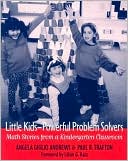Category Books
- Fiction Books & Literature
- Graphic Novels
- Horror
- Mystery & Crime
- Poetry
- Romance Books
- Science Fiction & Fantasy
- Thrillers
- Westerns
- Ages 0-2
- Ages 3-5
- Ages 6-8
- Ages 9-12
- Teens
- Children's Books
- African Americans
- Antiques & Collectibles
- Art, Architecture & Photography
- Bibles & Bible Studies
- Biography
- Business Books
- Christianity
- Computer Books & Technology Books
- Cookbooks, Food & Wine
- Crafts & Hobbies Books
- Education & Teaching
- Engineering
- Entertainment
- Foreign Languages
- Game Books
- Gay & Lesbian
- Health Books, Diet & Fitness Books
- History
- Home & Garden
- Humor Books
- Judaism & Judaica
- Law
- Medical Books
- New Age & Spirituality
- Nonfiction
- Parenting & Family
- Pets
- Philosophy
- Political Books & Current Events Books
- Psychology & Psychotherapy
- Reference
- Religion Books
- Science & Nature
- Self Improvement
- Sex & Relationships
- Social Sciences
- Sports & Adventure
- Study Guides & Test Prep
- Travel
- True Crime
- Weddings
- Women's Studies
Little KidsPowerful Problem Solvers: Math Stories from a Kindergarten Classroom » (1st Edition)

Authors: Angela Giglio Andrews, Paul R. Trafton, Lilian G. Katz
ISBN-13: 9780325004310, ISBN-10: 0325004315
Format: Paperback
Publisher: Heinemann
Date Published: February 2002
Edition: 1st Edition
Author Biography: Paul R. Trafton
Angela Andrews has spent more than 25 years teaching preschool and kindergarten. In 1990, she received the Presidential Award for Excellence in Mathematics Teaching. She was a member of the preK-2 writing team for NCTM's Principles and Standards for School Mathematics (2000). Angela currently teaches mathematics at Scott Elementary School in Naperville, Illinois.
Paul Trafton is a professor in the mathematics department and Fellow in the Regent's Center for Early Developmental Education at the University of Northern Iowa. His long-term interest in primary mathematics led to his chairing the K-4 writing team of the Curriculum and Evaluation Standards for School Mathematics (NCTM, 1989).
Book Synopsis
Angela Andrews and Paul Trafton know from experience that kindergartners can do great math-especially if they are engaged and challenged from the start. This collection of stories from Angela's classroom highlights the problem-solving potential of very young students. Arranged by month of the school year, each of these ten stories is an inspiration for a classroom lesson. Together the stories provide a comprehensive picture of what can be accomplished with little kids: making sense of math is the focus of the teaching; respecting children's thinking makes it possible.
Several major themes recur throughout the stories:
With every story, Angela provides not only a narrative, but also a thoughtful appraisal of her own decisions, dilemmas, and choices in the teaching of math. At the end of each story, Paul Trafton focuses on the math involved and the mathematical reasoning of the children. Clearly evident throughout is the authors' conviction that teachers not only need to understand the math in the problems the children are tackling, but also to listen respectfully and to question them honestly about their thinking. In this way, teachers can support their young students and capitalize on the opportunities at hand, the many "teachable moments" this book so successfully captures.
Table of Contents
September-Which Holds More?
October-The Dilemma of Sharing Cookies
November-It's Not Fair! They've Got More Blocks
December-When Is a "Triangle" a Triangle?
January-Soup with Chicken Inside
February-The Secret of the Hearts
March-Ms. McGill's Challenge
April-Aaron and the Tall Tower
May-"Dear Bus Barn"
June-Revisiting the Rice Table
Subjects
 Educational Levels & Settings
Educational Levels & Settings  Early Childhood Education
Early Childhood EducationEducation & Teaching
 Teaching & Teacher Training
Teaching & Teacher Training  Teaching - Mathematics
Teaching - MathematicsScience & Nature
 All Science & Nature
All Science & Nature  Mathematics
MathematicsNonfiction
 Science & Nature
Science & Nature  Mathematics
MathematicsNonfiction
 Science & Nature
Science & Nature  All Science & Nature
All Science & Nature
